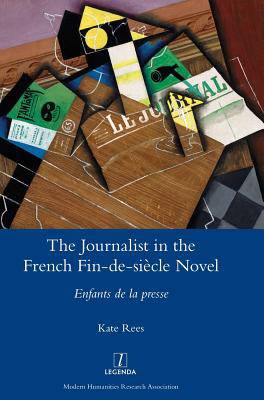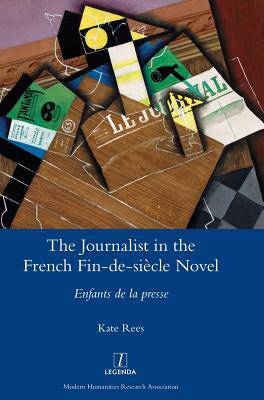
- Afhalen na 1 uur in een winkel met voorraad
- Gratis thuislevering in België
- Ruim aanbod met 7 miljoen producten
- Afhalen na 1 uur in een winkel met voorraad
- Gratis thuislevering in België
- Ruim aanbod met 7 miljoen producten
Omschrijving
The French fin de siècle witnessed a sharpening of the battle between literature and journalism, with literary authors increasingly seeking to distinguish their writings from the 'mere' reportage of journalists. Technological innovations, massive improvements in the literacy rate and the lifting of government censorship contributed to the extraordinary flourishing of the press. Parisian mass publications almost tripled their circulation between 1880 and 1914, with content becoming more news-driven and sensational, and layout more striking. In response, the novel of the period represents the figure of the journalist in changing and ambiguous ways, variously perceiving reporter-characters as scurrilous, opportunistic, dynamic and heroic, while echoing and parodying techniques of reportage. Through original readings of texts by writers including the canonical literary figures Zola and Maupassant, popular authors Jules Verne and Gaston Leroux, and novelist and media 'darling' Marcelle Tinayre, Kate Rees evaluates the fictional response to the increasingly powerful domain of journalism. She charts literary reaction to developments in the press, such as the rise of the foreign correspondent, the popularity of crime reporting and the growth of publications aimed at women.
Alleen bij Standaard Boekhandel
Beoordelingen
We publiceren alleen reviews die voldoen aan de voorwaarden voor reviews. Bekijk onze voorwaarden voor reviews.













